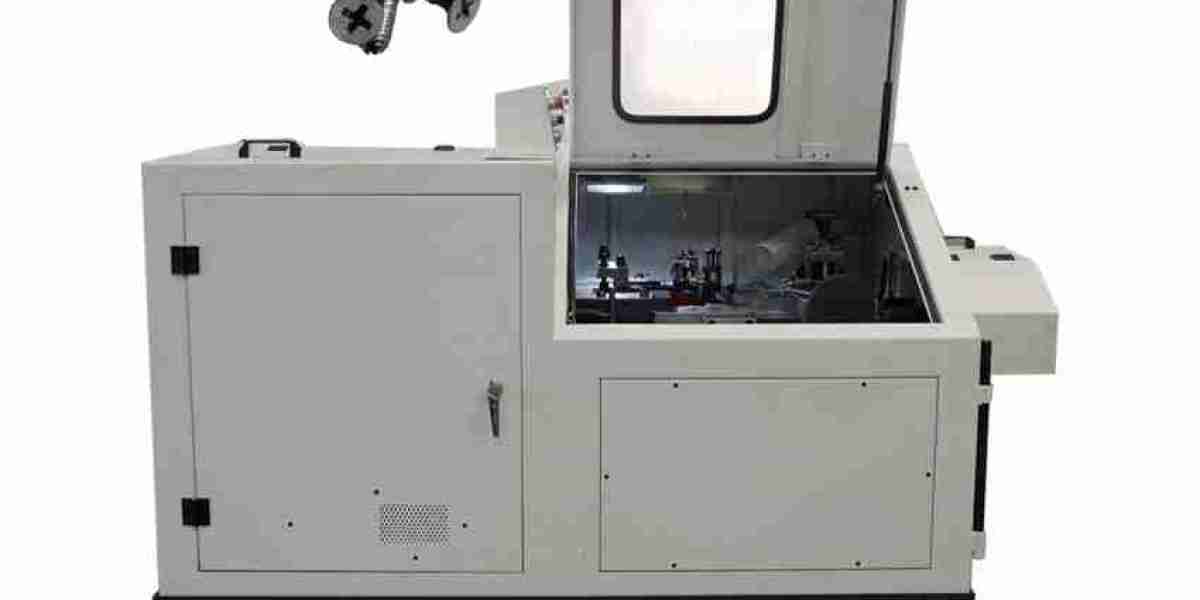The cold forging machine market is subject to a complex and evolving regulatory landscape that varies by region. These regulations are primarily focused on ensuring safety standards, environmental sustainability, and quality control in manufacturing processes. Understanding the regulatory environment is essential for stakeholders, including manufacturers, suppliers, and investors, to navigate compliance requirements and mitigate risks. This article provides an overview of the key regulatory frameworks affecting the cold forging machine market.
1. Safety Standards and Worker Protection
Regulations:
Manufacturers of cold forging machines are required to comply with strict safety standards to protect workers from potential hazards, such as injuries from high-speed machines and exposure to harmful materials. Regulatory bodies like the Occupational Safety and Health Administration (OSHA) in the United States and the European Union’s Machinery Directive (2006/42/EC) enforce safety requirements for industrial equipment.
Impact on the Cold Forging Machine Market:
- Machine Safety Features: Cold forging machines must be equipped with safety mechanisms such as emergency stops, protective shields, and sensors to prevent accidents.
- Regular Inspections: Companies must conduct periodic inspections and certifications to ensure that their machinery meets safety standards.
2. Environmental Regulations and Sustainability
Regulations:
Environmental regulations are becoming increasingly stringent in many regions, focusing on reducing the carbon footprint, minimizing energy consumption, and ensuring the responsible use of resources in manufacturing processes. In the European Union, the REACH Regulation (EC 1907/2006) and Eco-Design Directive (2009/125/EC) are key frameworks that govern the environmental impact of industrial machines, including cold forging equipment.
Impact on the Cold Forging Machine Market:
- Energy Efficiency Standards: Regulations require cold forging machines to meet specific energy efficiency criteria, promoting the adoption of low-energy technologies.
- Waste Management: Manufacturers must implement systems to reduce material waste and ensure proper disposal or recycling of byproducts, in compliance with environmental regulations.
3. Quality Standards and Certification
Regulations:
Quality control is crucial in cold forging, where precision and durability are key. Regulatory bodies and industry standards such as ISO 9001 (Quality Management Systems) and ISO 14001 (Environmental Management Systems) provide guidelines for ensuring consistent quality in manufacturing processes.
Impact on the Cold Forging Machine Market:
- Certification Requirements: Cold forging machine manufacturers must obtain certifications to demonstrate that their products meet global quality standards, ensuring that they are reliable and capable of producing high-performance parts.
- Continuous Improvement: Compliance with quality management systems ensures continuous process improvements, which is essential for maintaining competitiveness in the global market.
4. Trade and Export Regulations
Regulations:
Cold forging machines, often used across multiple industries including automotive, aerospace, and manufacturing, are subject to trade and export regulations that govern international shipments. These regulations include tariffs, trade agreements, and export control laws. In the United States, the Export Administration Regulations (EAR) and International Traffic in Arms Regulations (ITAR) may apply to cold forging machinery used in defense-related applications.
Impact on the Cold Forging Machine Market:
- Tariffs and Trade Barriers: Manufacturers must navigate various trade barriers when exporting cold forging machines, especially in emerging markets where import duties and tariffs can impact costs.
- Compliance with Export Laws: Companies exporting machinery to sensitive markets must comply with export control laws, ensuring that their products are not diverted for unauthorized uses.
5. Industrial Standards for Material and Component Specifications
Regulations:
Cold forging machines are used to manufacture components for critical industries like automotive, aerospace, and defense, which require adherence to strict material specifications. Regulatory organizations such as the American Society for Testing and Materials (ASTM) and Society of Automotive Engineers (SAE) set industry-specific standards for materials used in cold forging processes.
Impact on the Cold Forging Machine Market:
- Material Compliance: Cold forging machines must be capable of working with a variety of materials that meet the required specifications for different industries, ensuring that parts meet safety and performance standards.
- Component Inspection: Rigorous inspection and testing procedures must be followed to verify that components produced by cold forging machines meet industry standards for durability, safety, and performance.
6. Regional Variations in Regulations
Regulations:
Regulatory requirements for cold forging machines can vary significantly by region, making it essential for manufacturers to stay informed about local laws. In regions like the European Union, stringent regulations are often enforced, while in emerging markets, regulatory frameworks may be less developed but are rapidly evolving.
Impact on the Cold Forging Machine Market:
- Adaptation to Local Standards: Manufacturers must ensure that their cold forging machines meet the specific regulatory requirements of the countries they operate in, especially when entering new markets.
- Compliance Challenges: Variations in regulations across countries can lead to challenges in meeting multiple compliance standards simultaneously, particularly for multinational manufacturers.
7. Product Liability and Consumer Protection Laws
Regulations:
In markets with strong consumer protection laws, such as the European Union and North America, manufacturers of cold forging machines may face liability if their equipment causes harm due to defects or non-compliance with safety regulations. Consumer protection laws ensure that products meet specific safety and performance standards before they are released to the market.
Impact on the Cold Forging Machine Market:
- Liability Risk: Manufacturers must implement strict quality control measures to reduce the risk of defects that could lead to legal liabilities.
- Insurance and Risk Management: Companies must also adopt risk management strategies, including product liability insurance, to protect against potential claims.
Final Thoughts
The regulatory landscape for the cold forging machine market is multifaceted, encompassing safety standards, environmental regulations, quality control, and trade laws. Compliance with these regulations is critical for manufacturers to ensure the safety, reliability, and sustainability of their products. As the market continues to grow, staying abreast of regulatory changes in different regions will be essential for companies to maintain competitive advantage and avoid legal and operational challenges.


